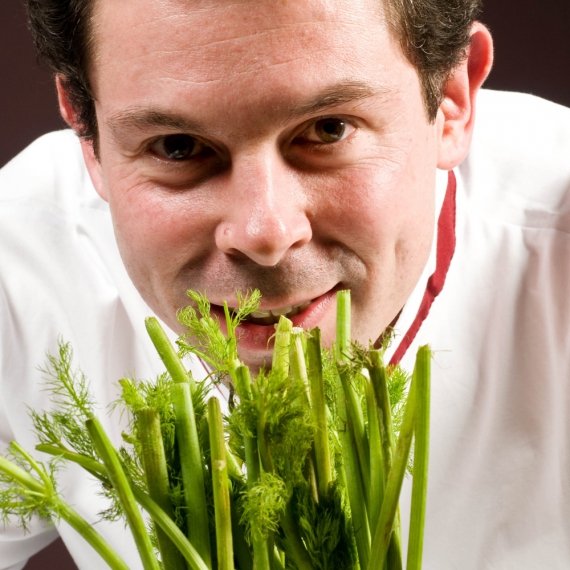Pascal Barbot

He’s the golden member of the so-called Génération Passard a movement also including Decoret and Colagreco that swept away old French academic way of cooking. Pascal Barbot is now 36 years old and cooks under three Stars well shining in Paris skies. Not a bad goal at all for a «petit cuisinier français», as he loves to define himself with a light snobbish tone.
Born in Vichy from a low-class family, today Pascal mostly recalls of his early years the kitchen and the kitchen garden where he used to pick up vegetables, enough to show his calling when he was just 7. Everything goes on regularly until 1986, when he obtains the cooking school diploma just before starting the common restaurant wandering. He works at Maxim’s, Clermont-Ferrand’ Clave, London’s Saveurs and Troisgros; with a stop-by in New Caledonia, where he spends his military service and reveals again traveling to be one of his main passion. From time to time, he distills from it a rarefied exoticism, trapped in a well-educated cuisine lexicon.
1993-1998: tears and blood flow by the great Arpège chef, 6 years spent learning how to respect a product to the bone, capsizing hierarchies between dishes and sidedishes, rich and poor, aroma and substance. In 2000, Astrance’s entrance is eschatologically open. It’s a third millennium cuisine: basic cooking techniques, no influences from Spain at all (his favourite instrument is a mortar from Thailand), pyrotechny banned, deep concentration and zero salt.
Minimalism is the sharpest weapon used to reinvent national tradition, strengthen by legendary sensitivity. Vegetables steal the stage to noble ingredients, on a background sourness that resumes the style of the chef. Hidden by its nudity, his great cuisine dissolves just like the restaurant, located in a very hidden place. Every day those spaces are stepped by Christophe Rohat, his partner and member of Génération Passard.
Has participated in
Identità Milano
Umbra di Perugia con residenza a Bologna, è giornalista e scrittrice di cucina. Tra i numeri volumi tradotti e curati, spicca "6, autoritratto della Cucina Italiana d’Avanguardia" per Cucina & Vini